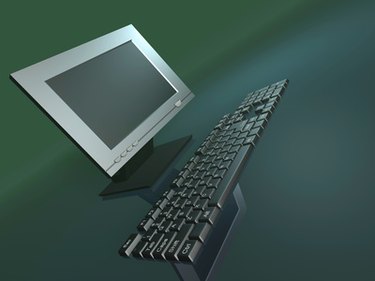
Iomega developed the Zip drive storage system in the early 1990s as a proprietary storage technology to give computer users more options for backing up data. Just like floppy disk drives, Zip drives read portable Zip disks. Zip drives and disks have distinct disadvantages and advantages that may influence your choice on whether you should incorporate the Zip system into your current computer setup.
Storage Capacity
Video of the Day
Iomega Zip disks come in three capacities capable of holding either 100MB, 250MB or 750MB of computer data. This is sufficient for large quantities of plain text documents and files, as well as limited amounts of media like songs and videos. Unfortunately, Zip disks can't beat the storage capacity offered by newer technologies like rewritable DVDs and portable USB flash drives, many which hold over 1GB of data.
Video of the Day
Data Speeds
Zip disks transfer data faster than floppy disks. Whereas the latter read and write data at a speed of approximately 125 kilobytes per second (kbps), the Zip disk can read and write data at a rate of 1 megabyte per second (mbps). This has since fallen far behind the speed of more modern storage systems. For example, a standard 72x CD-ROM can read data at a rate of over 10 mbps.
Connection Interfaces
Though Zip disks require a Zip drive to work, the drive itself is compatible with all computers thanks to its use of Universal Serial Bus (USB), a wired connection technology available on most modern computers and used to connect peripheral devices like keyboards and mice. This allows almost any computer to take advantage of the Zip format.
Portability
Unlike hard drives, which are connected somewhat permanently to a computer, Zip disks are very portable and can be inserted or ejected from any Zip drive connected to any computer. This is advantageous for those who need to transfer data and files to new locations, according Thomas E. Beach, Ph.D. of the University of New Mexico. Individuals concerned about security may also find a Zip disk's portability advantageous since it can be removed from the drive and locked in a secure area.
Price
When calculating a Zip disk's cost per megabyte, plus the need for using additional drive hardware to read them, a Zip disk is often more expensive than other types of storage media, according to a comparison provided by Willamette University of Salem, Oregon.